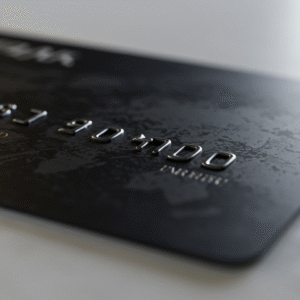This article may contain references to products or services from one or more of our advertisers or partners. We may receive compensation when you click on links to those products or services. Nonetheless, our opinions are our own.
The information presented in this article is accurate to the best of our knowledge at the time of publication. However, information is subject to change, and no guarantees are made about the continued accuracy or completeness of this content after its publication date.
Cross-border money transfers have grown more seamless due to digital innovation and an increasingly globalized financial landscape. Whether transferring funds for personal support, business dealings, or travel, selecting the most suitable method involves a balance of cost, convenience, speed, and reliability. Below are the leading methods currently available in 2025 for sending money abroad, with comparisons to assist decision-making.
- Best International Money Transfer Options
- Comparing Traditional and Fintech-Based Transfers
- Digital Wallet Advantages for Cross-Border Payments
- Reducing Fees and Optimizing Exchange Rates
- Ensuring Speed and Security in 2025
- Choosing a Method That Fits Your Needs
- Frequently Asked Questions
- Recommended Reads
Best International Money Transfer Options
Bank Transfers
Banks continue to serve as a reliable method for international remittances. They offer familiar interfaces and institutional trust. However, users often face higher transaction fees, unfavorable exchange rates, and processing times ranging from 2 to 5 business days.
Online Money Transfer Services
Services such as Wise (formerly TransferWise), Revolut, and PayPal have established themselves as efficient alternatives. They typically offer faster delivery (often within minutes to a few hours) and more competitive rates than banks. These platforms also provide transparent pricing structures and mobile accessibility, enhancing convenience.
Cryptocurrency Transfers
For those comfortable with digital assets, cryptocurrency transfers present a cost-effective and fast option, with some transactions settling in under an hour. That said, volatility in asset prices and regulatory restrictions in certain regions may limit practicality or reliability.
Wire Transfers
Traditional wire transfers via institutions like SWIFT remain relevant for large transactions. They are secure and traceable, often completed within one business day. However, the method is known for high service charges and inconsistent exchange rate margins.
Money Transfer Services
Providers such as Western Union and MoneyGram offer global accessibility, particularly for recipients without bank accounts. With the option to send or receive funds in cash, these services are often favored for their reach and rapid delivery. Fee structures can vary widely based on the destination and payment method.
Peer-to-Peer (P2P) Payment Apps
Apps like Wise, PaySend, and Xoom now offer international functionality, expanding beyond domestic payments. These platforms are known for user-friendly experiences and typically low fees. Speed of delivery ranges from near-instant to a few days depending on the currency and country.
Comparing Traditional and Fintech-Based Transfers
Traditional Banks
- Perceived as more secure due to regulatory frameworks.
- Often involve multiple intermediary banks, which can increase total transfer costs and delays.
- Generally less transparent with exchange rate markups.
Fintech Platforms
- Offer near-instant transfers in many corridors.
- Use mid-market exchange rates with minimal markups.
- Present transparent pricing with modern interfaces accessible via mobile apps.
Digital Wallet Advantages for Cross-Border Payments
Digital wallets such as PayPal, Revolut, and Cash App enable convenient international transactions without the constraints of traditional banking hours. They typically provide lower transaction fees, competitive exchange rates, and enhanced security features such as two-factor authentication and real-time tracking.
Voted "Best Overall Budgeting App" by Forbes and WSJ
Monarch Money helps you budget, track spending, set goals, and plan your financial future—all in one app.
Get 50% OFF your first year with code MONARCHVIP
Reducing Fees and Optimizing Exchange Rates
Transfer costs and currency conversion margins can vary significantly between services. To optimize the amount received, consider the following:
- Compare rates across multiple platforms before initiating a transaction.
- Examine the full effective rate, which includes both transfer fees and exchange rate markup.
- Larger amounts may qualify for reduced fees or preferential rates.
- Timing transfers during favorable currency fluctuations can yield better outcomes.
Ensuring Speed and Security in 2025
Modern transfer platforms prioritize security and transparency. Look for services offering:
- End-to-end encryption and fraud detection systems.
- Biometric verification or two-factor authentication.
- Real-time notifications and tracking.
- Clear policies on dispute resolution and fund recovery.
Time-sensitive transfers should account for:
- Cut-off times for processing, which vary by service.
- Transfer limits that may affect prioritization or fees.
- Recipient country’s banking infrastructure and supported currencies.
Choosing a Method That Fits Your Needs
Selecting the most effective transfer option depends on a variety of factors:
- Speed: For emergencies, prioritize services with near-instant settlement.
- Fees: Smaller amounts may benefit from zero-commission platforms; large sums often require more cost-effective bank wires.
- Recipient Access: Ensure the recipient has access to the method chosen, whether via a bank, app, or cash outlet.
- Currency Support: Not all services support all currencies; verify compatibility before proceeding.
Frequently Asked Questions
Which services are most reliable for international transfers in 2025?
Top-rated services include Wise, Revolut, and PayPal for digital convenience; Western Union for global cash pickup; and traditional banks for high-value transfers with security oversight.
Are digital wallets safe for global transactions?
Yes. Modern wallets integrate encryption, transaction monitoring, and biometric login options. Reputable platforms also comply with international financial regulations.
Do banks still offer competitive options?
While trusted, banks often lag behind fintechs in terms of speed and cost-efficiency. They remain a preferred choice for individuals prioritizing regulatory oversight.
Can cryptocurrency be used to send money abroad?
Yes, but with caution. Blockchain-based transfers can be fast and low-cost, yet value volatility and regulatory uncertainties require thorough risk assessment.
What makes peer-to-peer platforms attractive?
P2P platforms often provide transparent rates, minimal fees, and intuitive apps. They are especially effective for small transfers and personal payments.

Reviewed and edited by Albert Fang.
See a typo or want to suggest an edit/revision to the content? Use the contact us form to provide feedback.
At FangWallet, we value editorial integrity and open collaboration in curating quality content for readers to enjoy. Much appreciated for the assist.
Did you like our article and find it insightful? We encourage sharing the article link with family and friends to benefit as well - better yet, sharing on social media. Thank you for the support! 🍉
Article Title: 6 Best Ways to Send Money Internationally in 2025
https://fangwallet.com/2025/09/17/6-best-ways-to-send-money-internationally-in-2025/The FangWallet Promise
FangWallet is an editorially independent resource - founded on breaking down challenging financial concepts for anyone to understand since 2014. While we adhere to editorial integrity, note that this post may contain references to products from our partners.
The FangWallet promise is always to have your best interest in mind and be transparent and honest about the financial picture.
Become an Insider

Subscribe to get a free daily budget planner printable to help get your money on track!
Make passive money the right way. No spam.
Editorial Disclaimer: The editorial content on this page is not provided by any of the companies mentioned. The opinions expressed here are the author's alone.
The content of this website is for informational purposes only and does not represent investment advice, or an offer or solicitation to buy or sell any security, investment, or product. Investors are encouraged to do their own due diligence, and, if necessary, consult professional advising before making any investment decisions. Investing involves a high degree of risk, and financial losses may occur including the potential loss of principal.
Source Citation References:
+ Inspo
There are no additional citations or references to note for this article at this time.












































